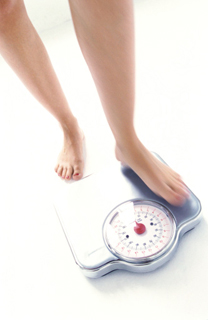Why are eating disorders among Jewish women on the rise?
Permanent link
“Eating disorders provide opportunity to excel, which is so important in the Jewish community.” Stated Adrienne Ressler— eating disorders and body image specialist for the Renfrew Center— in her opening remarks at a recent conference in Chicago: “Food, Body Image, and Eating Disorders in the Jewish Community.” More than 35 women participated in the half-day seminar from a variety of professional backgrounds including, mental health professionals, educators and rabbis.
The rise
In recent years, according to Ressler and other professionals at The Renfrew Center, a pioneer foundation in eating disorder treatment, there’s been a 500 percent increase in the number of women in the United States who they treat that identify as Jewish. Though no one denomination attributes to the rise, the number of Orthodox women admitted to the center grew so much in recent years that they recently launched a separate program to accommodate observant Jewish women.
Adult women
Another unexpected trend— the number of adult women seeking treatment. In 2001, 10 percent of the Renfrew Center’s clientele were over age 35, today that number is closer to 27 percent. Ressler explains, “this is because many young girls don’t get help that they need at a young age [so they] have problems throughout life that don’t get addressed until adulthood.” Ressler’s research examines the relationship between mothers and daughters and how this special bond can influence body image and even perpetuate the cycle of eating disorder from mother to daughter. “It is important to understand what is going on with adult women and how it is affecting the home and their children,” she said. “It’s L'dor v'dor or generation to generation— disordered eating is passed down.”
Eating disorders in Israel
Marjorie C. Feinson, another speaker at the conference and the principal investigator in the first community study of disordered eating and domestic abuse among women in Israel, shared findings from her study.
Feinson interviewed 501 Jewish women in Israel from all different backgrounds and found that 15.2 percent of the total population in that country has an eating disorder of some kind. She broke the numbers down further by religious denomination and found that whether a woman was secular or Orthodox, the percentages stayed basically the same.
While the study has yet to be duplicated in the United States, Feinson believes that, “other studies show that it’s somewhere between 12-17 percent, so the rates are very similar whether you are a Jewish woman in Israel or the United States.”
Feinson’s research suggests food culture in Israel is a major culprit, especially among the observant. “There are 18 religious holidays not including Shabbat that involve food preparation in Israel and with Shabbat preparations starting as early as Wednesday,” said Feinson. “Women who suffer, have no escape from the kitchen.” In one interview she conducted, an Ultra Orthodox woman told Feinson, “that her bulimia starts at Chanukah each year when she has to bake the Sufganiyah. She’d binge and purge the jelly donuts and it would take her five or six months to break the cycle. When she told her husband that it was no longer healthy for her to bake the treats for him and their six sons, he responded, ‘what kind of Jewish mother are you not to bake for Chanukah?’
But there’s hope
Still the conference ended on a hopeful note. Ressler concluded by highlighting the number of resources for support and recovery within our Jewish community. She also suggested the importance of “strong female role models, our religious and cultural traditions, and a rich heritage of generational connections and rituals, which can be used for healing.”
If you or someone you know is suffering from an eating disorder, resources are available. Contact the Renfrew Center or the Jewish Healing Network.



.jpg)



